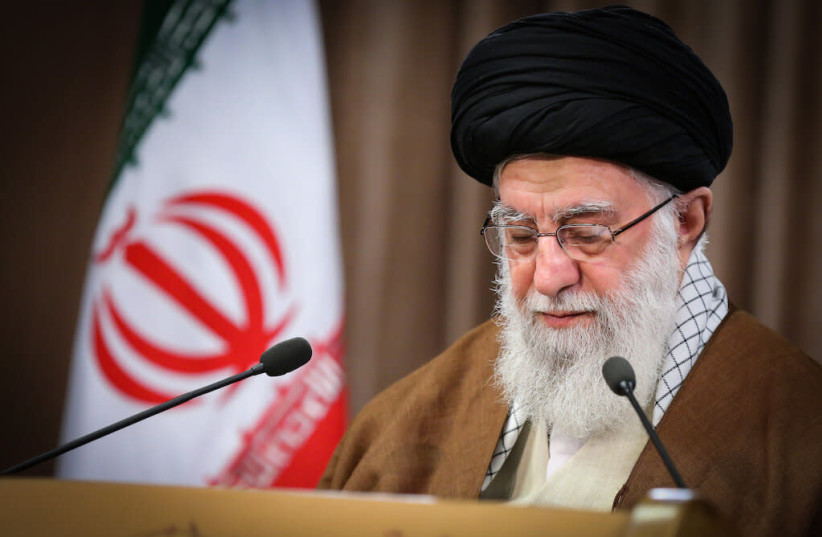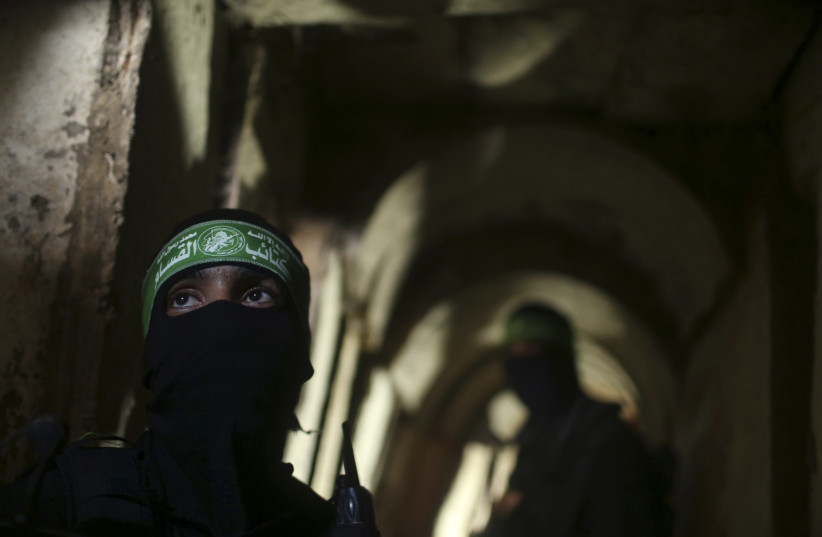The IDF spokesman recently addressed in detail Iran’s direct responsibility for the brutal and barbaric October 7th attack by the animals of Hamas.
Iran provided the terrorists with funds, training, weapons, and guidance to carry out the crime against Israel and humanity. Without a doubt, this attack comprises a key stage in Iran’s ultimate plan to acquire a nuclear weapon, achieve hegemony in the Middle East, and destroy Israel.
Thus, the clerical regime is using a sophisticated plan to drag Israel into a multi-front, multi-stage campaign. Khamenei is evidently willing to sacrifice Hamas and Gaza, and in the future possibly even Hezbollah, its prime asset in the Middle East.
Iran is a world problem, not just an Israeli problem
After eliminating Hamas, with a decisive victory in the "first Gaza war", and the construction of a reasonable solution for the "day after," Israel will be required to solve its bigger problems, namely Hezbollah and Iran. The world is beginning to understand, albeit slowly, that the Iranian problem is not just an Israeli problem.
I have argued in the past that any significant operation in Gaza must be evaluated with the end state in mind. In particular, Israel will need to determine who will be responsible for Gazan citizens the day after. However, considering Hamas's unprecedented atrocities and Iran's role in them I understand now that Hamas = Al Qaeda = ISIS = Nazis, and I have temporarily changed my position.

The solution for the day after in Gaza, after the IDF completes all the goals set by the cabinet, is very important, but it cannot dictate Israel's battle strategy, or act as a brake upon completing its mission.
This mission should entail the complete termination of Hamas' existence in Gaza, the destruction of all its military, governmental, and organizational capabilities, and the killing of its leaders and all those who participated in the planning and performance of the October 7th attack.
It should also, of course, entail the return of all the hostages and bodies to Israel, with no achievements for the murderers of Hamas.
Total victory is required
Total victory is also necessary for Jews all over the world. When Israel is weak, antisemitism and persecution of Jews intensify. Jews are watching the war and praying for a full and decisive victory, both for Israel and for them as well.
Still, what should a possible solution in Gaza look like after the war is over?
In my opinion, the Hamas attack is reminiscent of Japan's surprise attack on Pearl Harbor. Yet everyone forgets that Pearl Harbor entailed two surprises, the attack itself which killed thousands of American sailors, but also the strength of the American response. After two years of watching the world war from the sidelines, America entered the conflict in full force and launched a crushing and decisive victory over the Japanese.
This victory included the use of doomsday weapons.
Similarly, Israel’s responsibility and obligation, after Hamas’ attack, is to fundamentally change the rules of the game and surprise Hamas with the strength of its response.
Israel’s security doctrine should fundamentally change following October 7, certainly towards terror organizations, like Hamas in Gaza. No more using the old four pillars of Israel's National Security Strategy, deterrence, early warning, defense, and decisive victory.
Israel must say outright that the 2005 disengagement from Gaza was a mistake, but there is no one to talk to in post-war Gaza.
Israel should not rule the civilian lives of millions in Gaza and must disengage itself from the responsibility to supply any civilian needs to Gaza like electricity, water, sewage, food, working places, and any other civilian needs.
Israel should have no desire for a settlement or peace agreement with Gaza. Israel is the dominant state in the area and should dictate the security arrangements in Gaza for many years to come.
Gaza will become an area with a “similar minus” status to Area B in Judea and Samaria. Despite the use of "Oslo terminology," the proposed solution has nothing, even remotely, to do with the terrible mistake made by signing these agreements. No matter which entity will take responsibility for Gaza’s civil affairs, Israel will be the full security authority.
Israel will no longer adopt a strategy and language of temporary arrangements, rounds of violence, mediation, containment, ceasefires, differentiation, strengthening/weakening Hamas/PA.
The entirety of the Gaza Strip, especially Gaza City, will be demilitarized and will not contain tunnels, weapons, or the ability to produce weapons.
All goods that enter Gaza will be completely monitored by Israel, and Israeli security forces will be able to enter Gaza anytime, anywhere, to ensure the removal of any potential threat to Israel.

It is possible that until Israel reaches a stable solution based on these principles, we will undergo a continuous and long campaign against the remnants of hostile groups that survive in Gaza, or that will slink back into it over the years.
Yet, the battle will be on Israel's terms, without a continual fear of escalation, or of avoiding the elimination of terrorists, as a result of such fear.
Following the change in Israel's security doctrine, especially towards terror organizations, the way the Israeli leadership operates must change fundamentally.
No more reliance on deterrence and early warning. Israel’s behavior must be based on the picture that best suits it, and not on intelligence estimates, or predicting the reactions of its enemies.
In a metaphorical sense, cabinet meetings must no longer start with a long and exhausting intelligence assessment by military intelligence and the Mossad, but with the presentation of directives by the NSC and the political leadership. The role of the professional attendees will be only to show possible ways to implement them.
My ideas may appear to some readers as utopian. Indeed, the path to the final situation I described will not be easy.
Yet, Israel has no other choice after what just happened in the south, and what is still coming, until the end of the war with a decisive victory. If Israel seeks a flourishing existence on this now-shock-ridden piece of land, the approaches to Gaza must fundamentally change.
The described approach will restore Israel’s deterrence against its enemies in the ring of fire that the clerical regime of Iran has built around Israel. Israel must end Iran's attempts to destroy it.
The Jewish state has no other choice but to restore the nation’s trust in the IDF, which was badly damaged. Israel simply has no other country.
Brigadier General (Res.) Professor Jacob Nagel is a senior fellow at the Foundation for Defense of Democracies (FDD) and a professor at the Technion. He served as Prime Minister Netanyahu's national security advisor and as acting head of the National Security Council.
